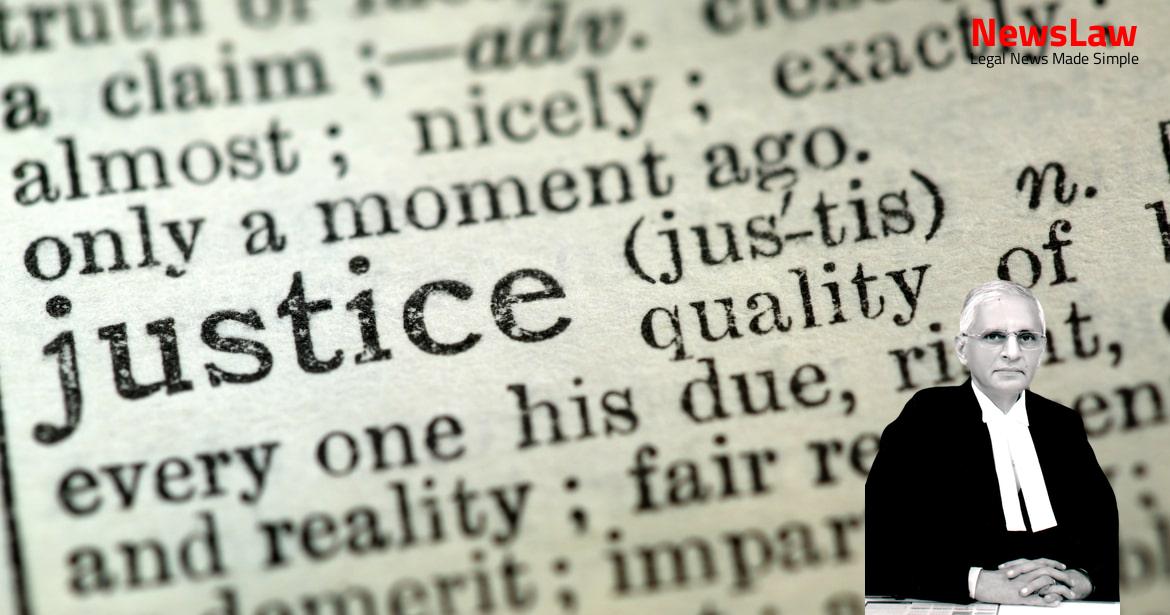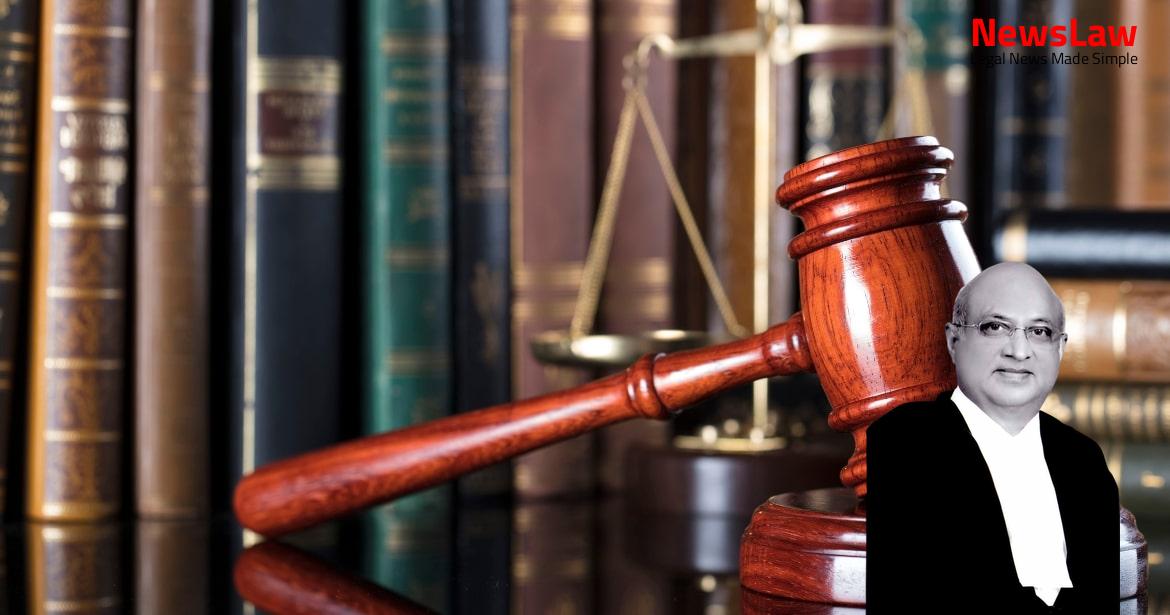In a recent legal case, the court delved into the complexities of preventive detention in the context of a fraudulent scheme. The analysis focused on the application of fundamental rights, procedural safeguards, and the distinction between ‘law and order’ and ‘public order’. This summary highlights the importance of legal scrutiny in preventive detention cases to ensure adherence to constitutional norms.
Facts
- Detenu introduced himself as a High Court advocate and promised a 100% return on investments in newly upcoming companies.
- Detenu collected over Rs. 50 lakhs from individuals by promising good profits through stock market investments.
- Detenu’s actions created fear and insecurity among investors, leading to loss of trust and faith in stock trading consultancies.
- Detenu’s ‘Modus Operandi’ involved collecting money through Phone-pe and net-banking, transferring funds to his wife’s account, and giving blank cheques to victims.
- Detenu used tactics like avoiding calls, diverting communication, and changing residential addresses to evade victims.
- Detenu presented himself as a High Court Advocate with a team including a CA and CS to gain victims’ trust.
- Multiple FIRs were filed against Detenu under Sections 420, 406, and 506 of the IPC for cheating and threatening victims.
- Detenu received anticipatory bail and regular bail in all FIRs, with the latest bail granted on 10.08.2020.
- Detenu’s method involved luring individuals into investing in share market for promised 100% returns within a short period.
- Detention order confirmed
- Period of detention directed to be one year from 05.10.2020
Also Read: Interpretation of Section 43B: Debentures vs. Interest Payment
Arguments
- The petitioner’s counsel argued that there is no proximate connection between the acts complained of and the date of the Detention Order as the last act complained of was in December 2019 and the Detention Order was passed 9 months later.
- The petitioner’s counsel contended that only a ‘law and order’ problem, not a ‘public order’ problem, would arise based on the facts of the case.
- The counsel argued that the Detention Order was justified due to the detenu’s modus operandi disturbing public peace and tranquillity and being prejudicial to the maintenance of public order.
- The counsel mentioned that the detenu getting bail in all cases raised an apprehension of possible future similar offences, justifying preventive detention.
- It was suggested that the State should have moved to cancel the bail if further untoward incidents were anticipated.
- The State’s counsel reiterated that the detenu was a habitual fraudster causing fear among the public, and preventive detention was necessary as ordinary law had no deterrent effect on him.
- The State’s counsel argued that the detenu had infringed ‘public order’ as defined by the Telangana Prevention of Dangerous Activities Act.
- The quick succession of alleged offences by the detenu indicated a likelihood of future similar offences prejudicial to public order.
Also Read: Ensuring Transparency in Electoral Processes
Analysis
- Preventive detention statutes require strict construction and meticulous compliance with procedural safeguards
- Judicial vigilance is necessary to prevent misuse of preventive detention powers
- Preventive detention is a jurisdiction of suspicion and must be exercised with caution
- Fundamental rights aim to protect civil liberties and not to detain individuals without recourse to a lawyer or trial
- The history of liberty is intertwined with procedural safeguards
- The detention order under preventive detention must be well-founded and not a substitute for ordinary criminal law
- The courts must ensure preventive detention falls within constitutional limits and safeguards
- The State has the power to apprehend and detain individuals suspected of being of hostile origin or acting in a manner prejudicial to various aspects of national interest.
- Detention orders can be made to prevent individuals from engaging in activities detrimental to public order.
- Various categories of offenders such as bootleggers, dacoits, drug offenders, etc., are listed as potential subjects of preventive detention.
- The maximum period of detention under such orders is twelve months.
- The definition of ‘public order’ includes causing harm, danger, alarm, or insecurity to the public or posing a grave danger to life or public health.
- Preventive detention orders for white-collar offenders require a demonstration of their activities adversely affecting public order.
- The distinction between ‘law and order’ and ‘public order’ is crucial in determining the scope of actions taken by authorities.
- Public order, when disturbed, must lead to public disorder, which is of a more serious nature.
- Examples are provided to illustrate the difference between disorder, public disorder, and communal unrest.
- The power to prevent subversion of public order is distinct from maintaining law and order under the Defence of India Act.
- Detention under Rule 30 is permitted if a person is likely to act in a manner prejudicial to the maintenance of public order.
- The reasoning behind the detention order in the case is scrutinized, highlighting the focus on maintaining public order due to the detenu’s actions.
- The granting of anticipatory bail/bail is questioned as a reason for preventive detention, with suggestions for recourse within ordinary law.
- The Act provides for a range of actions, with preventive detention being just one aspect.
- Specific instances from the case are cited to support the decision regarding the detenu’s actions and the issuance of the detention order.
- The detention order was quashed because the only ground mentioned was an apprehension of breach of law and order due to the Detenu’s potential actions if released.
- Other grounds argued by the Petitioner were not considered as necessary for the decision.
- Preventive detention statutes cannot be invoked solely on the basis of a possible apprehension of continued criminal behavior post-release, better suited for appeals or bail cancellations.
- No discussion on other grounds raised by the Petitioner or the legal precedents cited.
Also Read: Legal Analysis in Foreign Award Enforcement Case
Decision
- The appeal is allowed
- The impugned judgment is set aside
- The Detenu is ordered to be freed forthwith
Case Title: BANKA SNEHA SHEELA Vs. THE STATE OF TELANGANA (2021 INSC 371)
Case Number: Crl.A. No.-000733-000733 / 2021



